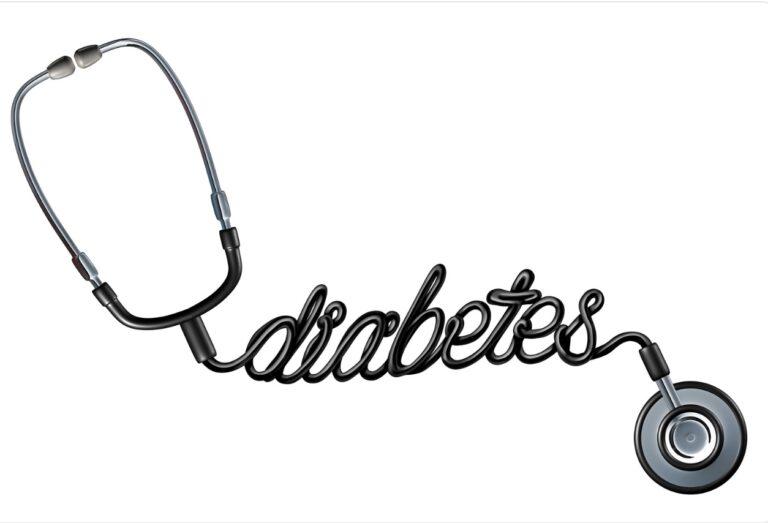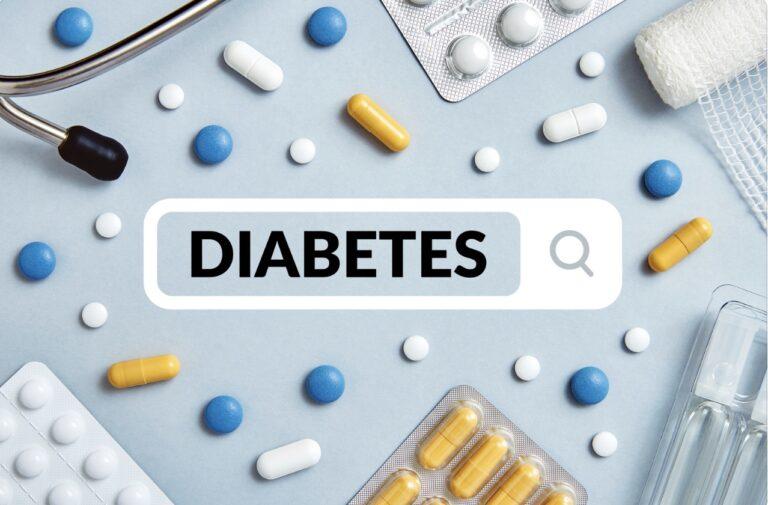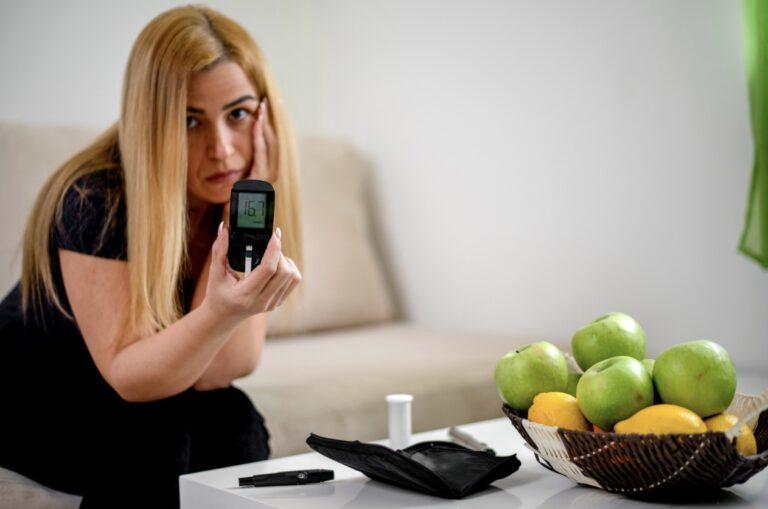Finding out you have an incurable, chronic condition is traumatic. You enter unknown, unsafe territory, and have to live this every day for the rest of your life. My diabetes diagnosis story is a long one, but don’t worry, I’ll try to keep it short.
I was always a ‘sickly child’, missing school regularly with recurring illnesses. It was not unusual for me to be unwell, but I would at least always get better. However, in 2015 during my first year of university, I came down hard with a chest infection which turned into pneumonia.
An expensive misdiagnosis
After two courses of MRSA-killing antibiotics, I was finally on the mend, or so I thought. From 2015-2018, I was at the hospital more than I was at work, having countless blood tests, referrals, CT scans, blood pressure checks, MRI scans, an endoscopy, and a camera up my nose. Misdiagnosis of skin cancer, a brain tumour, Addison’s disease. Crohn’s disease, dairy intolerances. All of this was put on my shoulders. It was a lot to carry. Everything was coming back inconclusive/normal, no matter what. Nothing was showing up and according to them, I had no health problems.
There was so much worry and stress about the tests and procedures. Guilt for needing so much time off work. It started to take a toll on my mental health. The last straw was when I went to my family doctor, who I had known since birth. I told him my symptoms, which he told me were just simply “a sensation in my head. It is all in your head”.
Feeling crushed
Naturally, I felt crushed. I knew there was something wrong. My body was not well. Yet a doctor who has known me for my entire life just told me everything I’m feeling is all in my head… It was so confusing and made me doubt myself. Was I going mad? Had I become a hypochondriac? Even my family had started to tell me that maybe I should just accept things as they are and move on with my life. So I did, for another 6 months or so. That’s when I got really sick.
In March 2019, I had the best time of my life on a trip to Dublin with my fiancée. On my return, I found out that my grandad, who was my hero, had terminal lung cancer.
Several days after, I noticed major fatigue, frequent urination, thirst, and weight loss to go with a painful rash I had on my chest and face for some weeks prior. Not wanting to cause a fuss due to my family still processing the news of my grandad, I ignored it and carried on. I went to London the last week of March to work on a film. Spent most of the shoot lying on a couch unable to move, feeling like my body was shutting down. I just remember drinking everything I could, including incredibly sugary coffees.
Back to work and my dad’s diabetes diagnosis
The day after I got back, I dragged myself to work. My walk home took me 2 and a half hours, rather than my normal 30 minutes. My boss took me to one side and was concerned because he felt I was slacking. Steve knew something was wrong, and I started to panic. My dad has type 1 diabetes also known as diabetes mellitus. He was diagnosed at age 15, hours after falling into a coma while in diabetic ketoacidosis (DKA). I’ve been brought up to recognise the warning signs and symptoms of type 1 diabetes complications such as fruity-smelling breath and rapid breathing. My dad would carry out glucose monitoring on me and my brother weekly.
2019 was a tough year for me and my parents. So I didn’t go to my dad to have my blood glucose levels checked. Of course, it would be the one period of time my blood sugars weren’t checked, I actually had type 1 diabetes. However, on April 3rd I blacked out, and when I came around I knew I needed my dad to test my blood sugar. It was 22mmol/L. My dad turned grey and started to cry. His worst nightmare had come true in front of his eyes. He told me we needed to go to the GP first thing in the morning. It was around 2am when my levels were checked.
The diabetes diagnosis
Going to the doctor a few hours later, my urine was tested and it was completely full of sugar and ketones. I was told to go home, drink water and a diabetes care nurse would call me within 2 hours. We had been home for 15 minutes and my phone started ringing. It was the hospital saying I needed to go straight away. No delay.
We arrived at ACU (Ambulatory Care) and I was seen by various doctors and nurses from the health care team. My blood was taken several times so my arms were bruised black. The haemoglobin A1c test (HbA1c test) was one of many tests done. It is a blood test that provides information about a person’s average levels of blood sugar (glucose) over the past three months. The HbA1c test is used to help diagnose diabetes, monitor diabetes, and to identify people who are at high risk for developing diabetes. The test is also used to see how well diabetes is being managed. A high HbA1c level may mean that a person’s blood sugar levels are too high (hyperglycemia) and that their diabetes is not under good control.
Then a diabetes nurse came into the room with a huge bag full of all my new supplies, and I had my first insulin dose. I was in DKA (diabetic ketoacidosis), and told if I had left it 2 more days, I’d have died. DKA is a life-threatening condition that develops when you don’t have enough insulin to let blood sugar into your cells. Very high blood sugar and low insulin levels lead to DKA. That completely messed with my head and still does now.
I was told I could go home the same day “because dad is type one”. I was on strict bed rest and not allowed to be left unsupervised due to how my body was reacting. That was that. I came home with a whole new life, an entire box filled with an insulin pump, glucose meter and various other diabetes treatment supplies, and just left to it.
Diabetes diagnosis and mental health
I remember writing in my journal a few days later that everything would be fine. Reader, everything was not fine. I had mental health issues before my diagnosis but being diagnosed and how that made me feel, along with how the condition itself makes you feel completely sent me in a downward spiral moving 100mph. My dad has never really spoken about his diabetes and how it makes him feel, so I was not expecting any of what I started to go through.
My diabetes diagnosis (and subsequent other autoimmune conditions that have developed in the last 2 years) has completely changed me as a person. It’s knocked my confidence and I am grieving for the life I had before. Being diagnosed as an adult, when you have already established your routine feels incredibly restricting. The mental toll that type 1 diabetes has on the brain is so intense. but equally, I am still trying to come to terms with it while dealing with the medical trauma I endured over the few years before diagnosis.
What is an autoimmune disease?
Autoimmune diseases can take 5+ years to diagnose. Autoantibodies for type 1 diabetes can be present in the body for up to 10 years before clinical symptoms start to show.
In people with type 1 diabetes, the body’s immune system attacks and destroys the pancreas’ insulin-producing beta cells of the pancreas. (Type 2 diabetes is caused by factors such as your lifestyle and genetics). Your immune system is designed to fight off infections and you can’t survive without it. That is fine when the body is responding to a real attack e.g a virus causing a cold. Unfortunately, some people have an over-sensitive or faulty immune system and mistake the pancreas as a danger, producing antibodies and attacking it causing diabetes. As a result, these individuals must take insulin injections to control their blood sugar levels.
It baffles me that not a single doctor thought to check for these given that my dad has type 1 diabetes. When I eventually had my blood test for autoantibodies my levels were over 2000 which is apparently incredibly high. I can’t help but feel frustrated that the test wasn’t done sooner. I have complications now that have arisen due to being undiagnosed for so long. On top of being told that everything was in my head? I still have days that are crippled with denial thinking I can’t really be sick.
Dealing with a diabetes diagnosis
Dealing with a diagnosis for many is not easy at all. There are ways that can help. In all honesty, I feel time has been my main one. I’ve just noticed over time that my anger is slightly less. Reaching out to other people living with diabetes has helped me tremendously.
I have been working with a diabetes educator and other health professionals like a dietitian to develop a treatment plan that includes healthy eating, carbohydrate counting, physical activity, and medication. This has increased my confidence immensely. They also provide education on how to monitor blood sugar levels and prevent complications. By working with a diabetes care team I have learned how to develop my diabetes management plan and improve my quality of life and self-care Ftyskills.
Additionally, speaking out about it on social media has helped, educating people who do not have diabetes and informing people of the misconceptions. It has definitely been a form of therapy for me which I am so grateful for.
I got two tattoos on my arm as a response to my diagnosis. One of which my partner designed for me. It was a really cathartic experience which has helped me process it a bit more.
Over lockdown, I started to embrace it even more, and ‘decorate’ my diabetes. Buying cute stickers, and a Myabetic bag to put my kit in. All these small things have helped me process diabetes as something that is a part of my life. For much of these first two years, I have felt completely lost and defined by my illnesses. But now, gradually I am starting to find myself again which is very comforting and exciting.
The main takeaway from my diabetes diagnosis is talking about it helps more than you think it would. Talking to friends, and family members and attending support groups. Do not be afraid to push for the support you deserve. It is a very isolating situation to be in. But as I have found, having the right support network makes a huge difference.
Medical Disclaimer
NowPatient has taken all reasonable steps to ensure that all material is factually accurate, complete, and current. However, the knowledge and experience of a qualified healthcare professional should always be sought after instead of using the information on this page. Before taking any drug, you should always speak to your doctor or another qualified healthcare provider.
The information provided here about medications is subject to change and is not meant to include all uses, precautions, warnings, directions, drug interactions, allergic reactions, or negative effects. The absence of warnings or other information for a particular medication does not imply that the medication or medication combination is appropriate for all patients or for all possible purposes.









